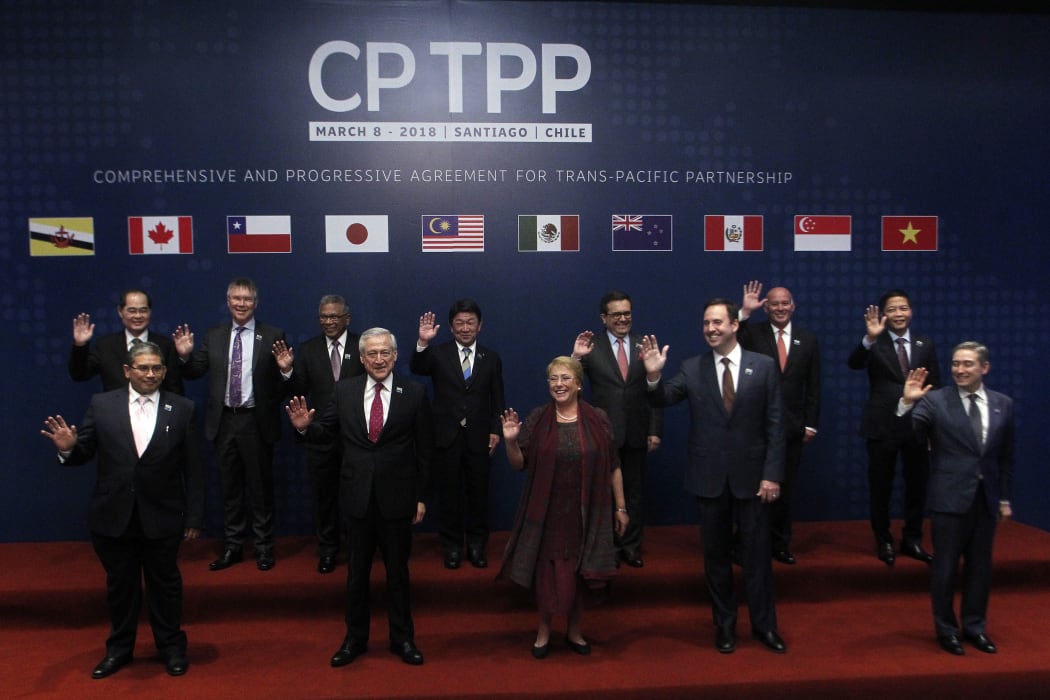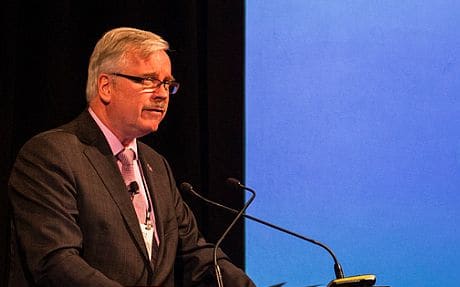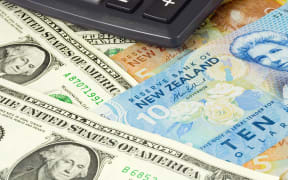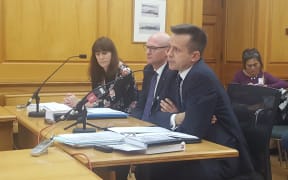The revised Trans Pacific Partnership could be in force by Christmas, opening up trade among eleven Pacific Rim nations.

Country representatives pose before the signing of the revised Trans Pacific Partnership agreement in Chile in March. Photo: AFP or licensors
New Zealand intends being one of the first six to ratify the Comprehensive and Progressive Trans-Pacific Partnership Agreement (CPTPP), which would trigger the lowering of barriers and standardising rules from investment to labour in a group that encompasses 14 percent of world trade.
Three countries - Japan, Mexico and Singapore - have ratified, and Australia, Chile and New Zealand have indicated they will soon follow suit.
"We are expecting that to happen by the end of the year, or at the latest, early next year," Trade Minister David Parker said.
The Trans-Pacific Partnership Agreement (CPTPP) Amendment Bill, which makes changes necessary for New Zealand to ratify the agreement [https://www.radionz.co.nz/news/political/356591/tpp-opponents-keep-fighting-as-mps-scrutinise-deal is currently before the Foreign Affairs, Defence and Trade select committee.
One of the committee's members and a key driver of the revised TPP when National was in power, Todd McClay, said his party supported ratification.
"The National opposition will be working very hard to make sure that happens. It's up to the government to find enough time to get through the House in time."
International Business Forum executive director Stephen Jacobi said a successful TPP would be a shot in the arm for multi-country trade deals.

NZ International Business Forum executive director Stephen Jacobi Photo: SUPPLIED
"The reality of international trade today - through global value chains that includes multiple jurisdictions, multiple countries supplying products that make up finished products - is an overwhelming logic that points to plurilateral approaches."
"I'm hopeful that the current focus on bilateralism and certainly on protectionism will give way at some point to a more enlightened attitude," Mr Jacobi said.
A number of countries were now clambering to join the TPP-11.
Colombia had made a formal request, while Thailand and South Korea had taken steps seeking admission. Britain has also expressed an interest following its eventual exit from the European Union.
Mr Jacobi said growing trade tensions between the world's two biggest economies - the United States and China - had other nations looking to TPP for certainty.
"It is a realistic vehicle for trade liberalisation, even after the United States has left."
"And things that are practical and hold the possibility of trade growth and better trade rules are always going to be looked at very seriously," Mr Jacobi said.
But Auckland law professor and TPP critic Jane Kelsey said the New Zealand government could still be sued by Japanese and Canadian investors under the TPP despite the coalition's vow to remove investor state dispute settlements, or ISDS, provisions.
"So we have a very serious problem with the current government that it's public position of no ISDS in future agreements is not actually what it's delivering on at all, and so its intensifying our exposure to those disputes."
Professor Kelsey also fears that provisions suspended under the original TPP, mainly related to American demands around issues such as intellectual property, copyright and drug buying policies, could be reactivated without any parliamentary scrutiny.





